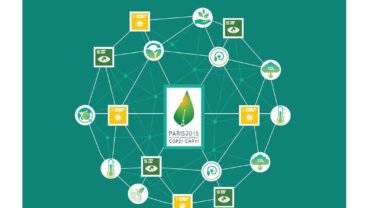PhD Fellow at UNEP DTU Partnership, Marco Schletz is heading up a prompt developing a Climate Bond Platform using blockchain technology, during the Yale Open Innovation Lab Climate Collabathon taking place this week (April 22-26th).
The prompt will develop a platform for real-time monitoring the impact of tokenized climate bond projects by creating a reliable data layer through connecting blockchain technology, IoT sensors and AI.
It applies an innovative financing mechanism called asset tokenization or security token offerings (STOs) to create tokenized climate bond tokens. Tokenized bonds are an avenue to accelerate the scaling up of the Green Bond market, which in turn will contribute to accelerate global climate action.
Transparent climate accounting
The Collabathon is organized by Yale OpenLab as part of the Open Climate Project, an open source initiative exploring the application of distributed ledger technology and other emerging technologies, such as IoT, big data and machine learning, to the challenge of helping the world keep a transparent climate accounting system towards the climate targets set in the 2015 Paris Agreement.
The Collabathon’s event sprints follow the most important international climate & technology events of the year. Starting with earth day on the 22nd of April, where three days of Open Climate Collabathon kicked off, with Marco Schletz hosting the prompt on the development of a Climate Bond Platform. The Collabathon schedule is available here.
Reliable data for climate investments
The participation in the Open Climate Collabathon is part of UNEP DTU Partnership’s work to identify and analyse concrete use cases for blockchain technology within the Paris Agreement agenda and the Sustainable Development Goals arena.
Innovative financing mechanisms like tokenized securities can be an important tool for accelerating climate action globally. Tokenized bonds provide benefits a number of benefits compared to conventional financing mechanisms, such as enhance the transparency, reduced transaction costs through automation and the removal of disintermediaries, and lower minimum investment sizes.
Below are more resources on accelerating climate action and green finance through blockchain technology. You can also listen to Marco Schletz on “How blockchain could revolutionize green finance in Asia” on the SDB Institute podcast here.

